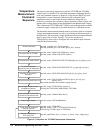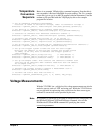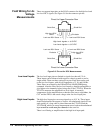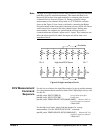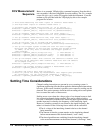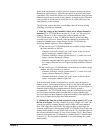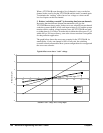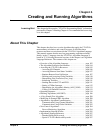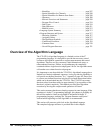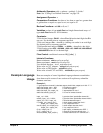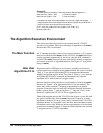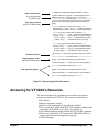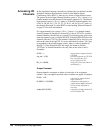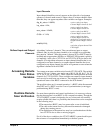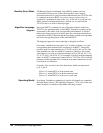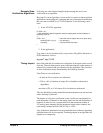
182 Creating and Running Algorithms Chapter 6
-- Identifiers . . . . . . . . . . . . . . . . . . . . . . . . . . . . . . . . . . . . . page 207
-- Special Identifiers for Channels . . . . . . . . . . . . . . . . . . . . page 208
-- Special Identifiers for Remote Scan Status. . . . . . . . . . . . page 208
-- Operators. . . . . . . . . . . . . . . . . . . . . . . . . . . . . . . . . . . . . . page 208
-- Intrinsic Functions and Statements . . . . . . . . . . . . . . . . . . page 209
-- Program Flow Control. . . . . . . . . . . . . . . . . . . . . . . . . . . . page 210
-- Data Types. . . . . . . . . . . . . . . . . . . . . . . . . . . . . . . . . . . . . page 210
-- Data Structures . . . . . . . . . . . . . . . . . . . . . . . . . . . . . . . . . . page 211
-- Bitfield Access . . . . . . . . . . . . . . . . . . . . . . . . . . . . . . . . . page 212
• Language Syntax Summary . . . . . . . . . . . . . . . . . . . . . . . . . page 213
• Program Structure and Syntax . . . . . . . . . . . . . . . . . . . . . . . page 217
-- Declaring Variables. . . . . . . . . . . . . . . . . . . . . . . . . . . . . . page 217
-- Assigning Values. . . . . . . . . . . . . . . . . . . . . . . . . . . . . . . . page 217
-- The Operations Symbols. . . . . . . . . . . . . . . . . . . . . . . . . . page 218
-- Conditional Execution. . . . . . . . . . . . . . . . . . . . . . . . . . . . page 218
-- Comment Lines . . . . . . . . . . . . . . . . . . . . . . . . . . . . . . . . . page 220
-- Overall Program Structure . . . . . . . . . . . . . . . . . . . . . . . . page 221
Overview of the Algorithm Language
The VT1422A's Algorithm Language is a limited version of the 'C'
programming language. It is designed to provide the necessary control
constructs and algebraic operations to support measurement and control
algorithms. There are no loop constructs, multi-dimensional arrays or
transcendental functions. Further, an algorithm must be completely
contained within a single function subprogram 'ALGn'. An algorithm cannot
call another user-written function subprogram.
It is important to note that while the VT1422A's Algorithm Language has a
limited set of intrinsic arithmetic operators, it also provides the capability to
call special user defined functions "f(x)." Appendix F page 487 shows how
to convert user defined functions into piece-wise linear interpolated tables
which can be downloaded into the VT1422A. The VT1422A can extract
function values from these tables in approximately 18 µs regardless of the
function's original complexity. This method provides faster algorithm
execution by moving the complex math operations off-board.
This section assumes that the user already programs in some language. If the
experience is in the 'C' programming language, this chapter is probably all
that will be needed to create an algorithm. If unfamiliar with the 'C'
programming language, studying the "Program Structure and Syntax"
section before beginning to write algorithms is recommended.
This section will present a quick look at the Algorithm Language.
The complete language reference is provided later in this chapter.



